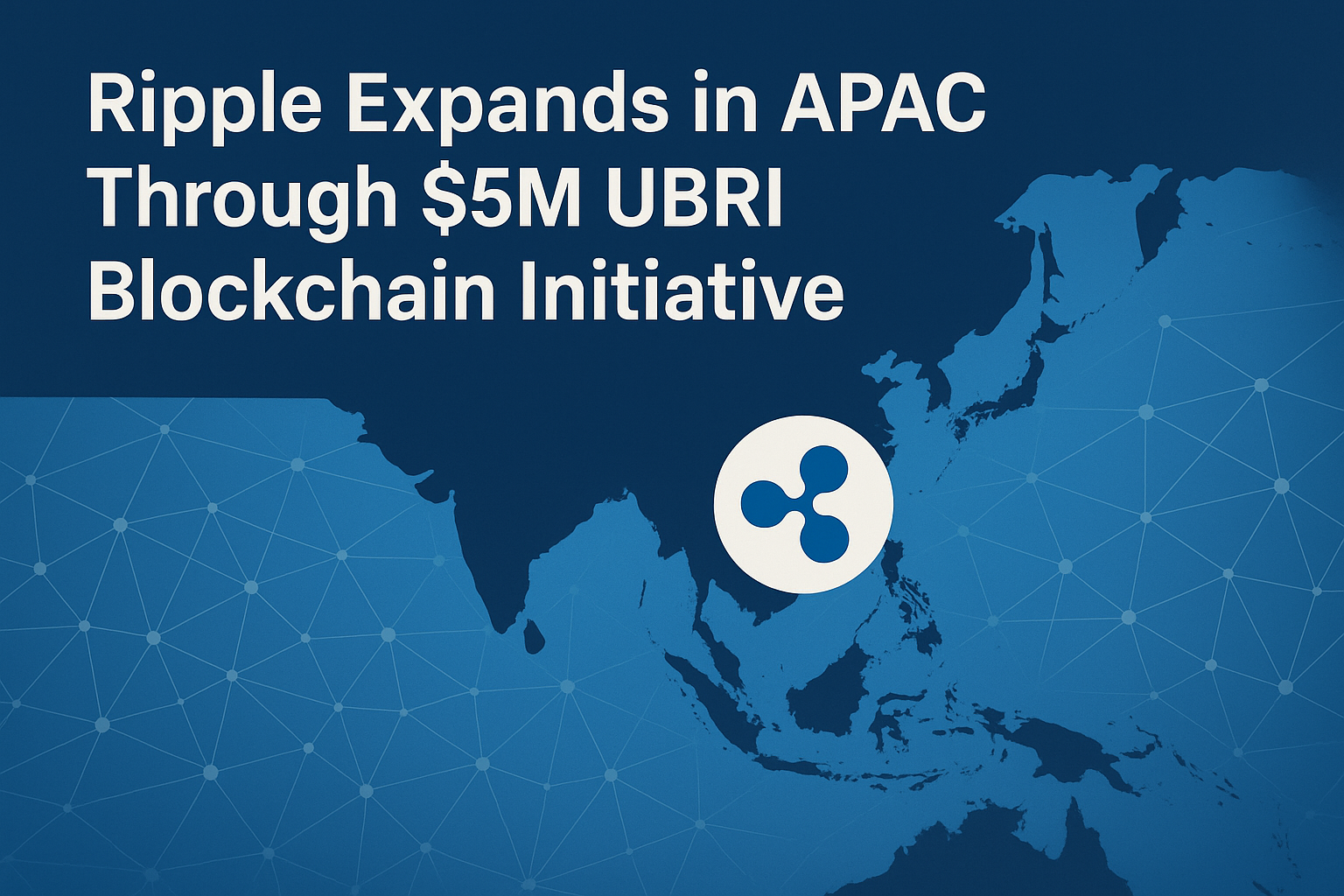
Ripple Strengthens Academic Blockchain Push
Ripple Labs is doubling down on its global education strategy by allocating an additional $5 million toward academic blockchain research in the Asia-Pacific (APAC) region. The funding will be channeled through its University Blockchain Research Initiative (UBRI), supporting institutions in six countries including Taiwan, Australia, South Korea, Japan, and Singapore.
This move follows Ripple’s broader commitment to advancing education and technological innovation. Just last month, Ripple announced a $25 million grant in its RLUSD stablecoin to U.S.-based education nonprofits. With this new investment in APAC, Ripple continues to demonstrate its commitment to fostering next-generation blockchain talent globally.
UBRI’s mission is to empower academic institutions by providing the tools and funding necessary to drive research and development in blockchain and crypto-related technologies. Ripple’s Chief Executive Officer, Brad Garlinghouse, emphasized that investing in education is pivotal to shaping a responsible and innovative blockchain future.
Funding Key APAC Institutions
Ripple’s latest funding round will support leading universities across the APAC region, with notable grants allocated to institutions in South Korea, Japan, Singapore, Taiwan, and Australia.
South Korea
- Yonsei University will receive $1.1 million through a six-year partnership. The funding supports advanced blockchain research and curriculum development.
Japan
- Kyoto University and University of Tokyo are set to benefit from $1.5 million, aimed at enhancing blockchain infrastructure studies and decentralized application (dApp) development.
Singapore
- The UBRI initiative has already allocated over $3 million collectively to Nanyang Technological University (NTU) and the National University of Singapore (NUS).
- Professor Yang Liu from NTU revealed that their research includes building an autonomous AI agent network on the XRP Ledger. This project aims to develop a transparent, modular AI platform that harnesses the power of blockchain.
“With our current grant, we are developing an autonomous AI agent network on the XRP Ledger… We believe this innovation will be pivotal in shaping the future of AI,” said Prof. Liu.
Taiwan
- Ripple has extended its reach by collaborating with the National Kaohsiung University of Science and Technology (NKUST) to explore real-world asset (RWA) tokenization on the XRP Ledger.
- Professor Echo Huang of NKUST expressed optimism, calling the partnership a “new chapter” for the university in leveraging blockchain to tokenize physical assets.
Australia
- Ripple has expanded its academic footprint in Australia by increasing support for the Australian National University and newly partnering with Victoria University.
- The total funding allocated to Australian universities under UBRI now stands at $1.3 million.
These educational partnerships are not just symbolic; they’re designed to accelerate innovation, build blockchain infrastructure, and prepare the next wave of developers and researchers in the field.
Ripple’s Global Education Vision
The recent $5 million push in APAC aligns with Ripple’s growing educational investments worldwide. In the U.S., Ripple recently contributed $25 million worth of RLUSD, its upcoming stablecoin, to nonprofits focused on improving teaching resources. Additionally, Ripple has launched the National Cryptocurrency Association, a nonprofit aimed at promoting cryptocurrency education and adoption across America.
Garlinghouse confirmed that Ripple will provide $50 million in grants to the newly formed organization. This step reinforces Ripple’s stance on nurturing educational ecosystems while advocating for clear crypto policy frameworks.
“Education remains the most powerful tool we have to prepare for a decentralized future,” Garlinghouse said in a recent statement.
Ripple and SEC Case Settlement
This strategic expansion in education also comes on the heels of Ripple’s legal victory against the U.S. (SEC).
The legal battle, which began in December 2020, centered around whether XRP should be classified as a security. In mid-2023, a U.S. federal judge ruled that XRP is not a security when sold on secondary markets, a decision widely considered a win for Ripple and the broader crypto industry.
Though Ripple still faces some legal proceedings related to institutional sales, the partial resolution of the case has lifted much of the regulatory uncertainty surrounding XRP and given Ripple room to expand its initiatives, such as UBRI, with renewed confidence.
Blockchain Talent Pipeline Building
Ripple’s focus on funding academic programs signals a deeper strategy: building a talent pipeline that is both technically proficient and globally distributed. These UBRI partnerships help cultivate:
- Blockchain engineers
- Cryptographers
- DeFi innovators
- AI and machine learning researchers
By providing real funding and academic collaboration opportunities, Ripple positions itself as not just a tech firm, but a key stakeholder in shaping the blockchain education ecosystem.
Conclusion
Ripple’s $5 million expansion through UBRI across the Asia-Pacific region highlights the company’s commitment to long-term blockchain growth, educational support, and global decentralization. By empowering students and researchers, Ripple ensures that the XRP Ledger—and the blockchain space more broadly—remains a fertile ground for innovation.
This initiative also comes at a time when Ripple’s regulatory battles are easing, allowing the company to focus on development, adoption, and impact rather than legal defense. With new academic projects emerging across six nations, Ripple is clearly laying the foundation for a more educated and decentralized Web3 future.